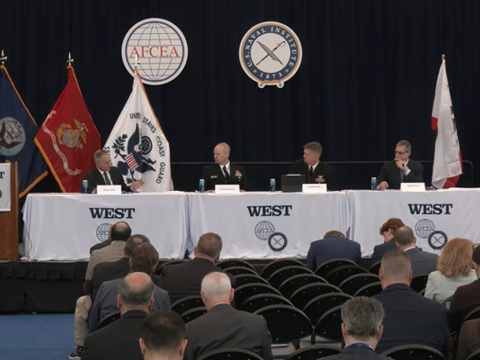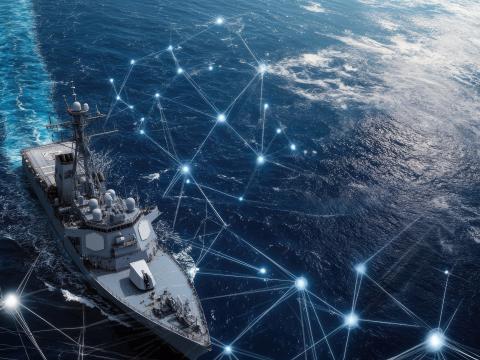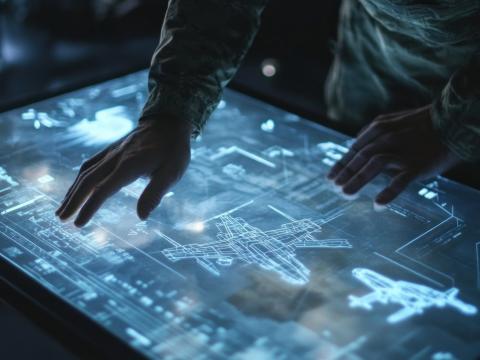A GENTLEMAN'S "B" FOR THE OUTGOING DNI
January and the inauguration of President Obama have offered up a smorgasbord of delicious topics on which to engage. There is John Brennan reemerging as the Deputy National Security Advisor for Counterterrorism and the accompanying discussion about whether the National Security Council and the Homeland Security Council should be merged. Perhaps we should deconstruct Denny Blair's confirmation testimony for clues about how he will run the Intelligence Community (IC); or we could debate the wisdom of the President's decision to nominate Leon Panetta to be CIA Director. Then there is Bob Gates' Senate Armed Services Committee testimony now as President Obama’s Secretary of Defense on the department’s priorities that we could explore for their impact on the IC. However, since Director of National Intelligence (DNI) Mike McConnell and the ODNI staff spent considerable effort in January documenting the performance of the DNI and by extension the IC during the McConnell tenure it is here that I want to dwell with my own evaluation.
Before proceeding though I must disclose that I have known Mike McConnell since 1972, that I consider him a personal friend, that I served with him twice while I was on active duty in Naval Intelligence, and that I view him second only to Bobby Inman as the finest intelligence officer I have encountered.
Before turning to my evaluation though, let's review how the ODNI graded its own performance in three different reports posted to www.dni.gov in January.
On January 15 ODNI posted “Fact Sheet: Continued Progress in Reforming Intelligence” (http://www.dni.gov/press_releases/20090115_release.pdf) which listed the “key milestones of McConnell’s tenure as:
• FISA Modernization
• Executive Order 12333 rewrite
• Cybersecurity: a 12-point Comprehensive National Cybersecurity Initiative
• Analytic Transformation: A-Space and the Library of National Intelligence
• Security Clearance Reform
• Collaboration and Career-focused Initiatives:
o Joint Duty program to pormote cross-collaboration, information sharing across the IC.
o Established Pay-for-Performance
o Launched the National Intelligence University
• Developed innovative IT solutions to enable information sharing across the IC.
Then on January 14th Mike McConnell appeared on the Charlie Rose show (http://www.dni.gov/interviews/20090108_interview.pdf). On 16 January the DNI held a press round table (http://www.dni.gov/interviews/20090116_interview.pdf) . Both events pretty much covered the same material with McConnell saying the most important accomplishments while he was DNI were the updating of the FISA Law and Executive Order 12333. According to the DNI he is most disappointed by not having enough time for all the IC issues that need attention. He talked at length in both interviews about learning from the Iranian Nuclear National Intelligence Estimate (NIE) the importance of unclassified key judgments that accurately convey the substance of the analysis. He also wanted to warn the nation about the cyber threat it faces and his concern about not just the destruction or interruption of the cyber infra-structure but also adversaries destroying or manipulating data for national security effects. At the Press Round Table the DNI talk about the imminent release of Intelligence Community Directive (IDC) 501 that would establish specific policy expectations for sharing and collaboration across the IC.
Finally on January 27th the 400 Day Update to the DNI's 500 Day plan was posted (http://www.dni.gov/500-day-plan/400dayplan.pdf). Here you got either “the glass is half empty” or “the glass is half full” view of the IC depending on your perspective, but it does appear in the ODNI graphic below that almost half the goals are at risk at the 80% course marker.
So Mazzafro how did the IC do under your buddy McConnell’s stewardship!? In a phrase I would say pretty good, but not good enough. Certainly there were no major attacks against the
As important and difficult as it was to get the FISA legislation updated so foreign communications moving ACROSS servers in the US can be intercepted without a warrant; Executive Order 12333 rewritten to give the DNI authority over the IC; and IDC 501 issued mandating IC wide sharing and collaboration by June 1st 2009 these are all more bureaucratic form than intelligence substance. Yes, all three will positively impact IC performance going forward, but what did any of these documents do to improve IC capabilities or performance since February 2007?
With regard to intelligence sharing and collaboration, the IC individually and collectively seems oblivious to the needs of the President, the intent of the Congress and the direction of the DNI. That this flag is still red in the McConnell 500 Day Plan after the lessons learned from the 9/11 Commission and the Weapons of Mass Destruction (WMD) Commission should give any IC senior pause about how effective they have been.
Mike McConnell knew IC acquisition was broke when he became the DNI IN February 2007, which is why one of his first acts was to create a Deputy DNI for Acquisition. Looking at the 400 Day Key Accomplishments graphic above it is fair to say that not much progress has been achieved despite considerable effort. This tells me that much of acquisition reform is beyond the IC's ability to effect, but that the IC also can't seem to get itself organized so it can function better under extent conditions.
One of the reasons for establishing the DNI position in December 2004 was the prevalent view that the Director of Central Intelligence (DCI) could not effectively run both the IC and the CIA. DNI McConnell, because President Bush insisted he do it, remained the President's principal daily intelligence briefer, which meant being the CEO of the IC came after (both chronologically and factually) the morning White House Intelligence Briefing. Separating the DNI position from being the President's daily intelligence briefer is important if the DNI is going to focus on running the IC as Cabinet Secretaries do for their departments.
In his round of exit interviews the press did not to ask DNI McConnell any of the following questions:
· Is the size of the IC too large, too small: about how much should the nation be investing in intelligence?
· Generically, where have you intelligence have the most impact on the security of the US during your watch; where is improvement most needed?
· Are there any acquisition success you could hold up to the IC as models; are there any IC initiatives that should be cancelled?
· Beyond FISA does the convergence of foreign and domestic intelligence require other legislative or regulatory changes?
· Do you thing you made a difference?
On the positive side Mike McConnell, unlike his predecessor who missed this opportunity as the first DNI, firmly established the DNI as the government’s senior intelligence officer with accountability for IC performance. More specifically, he made the DNI the forcing element for functional integration that will enable the IC to me more than the sum of its parts.
So for a letter grade I would give Mike McConnell a “gentleman's B” -- not because he’s a dilettante -- but because he ran the IC in a gentlemanly manner with modesty and integrity. He certainly left the IC better than he found it. Was he an effective DNI? Absolutely, but unfortunately with national security you don’t get to measure how far you moved the ball from where you took possession, but how close you got it to the goal line. Mike understands this because it is one of the many things he taught me.
That's what I think; what do you think?



Comment
I have yet to find, in my
Terry,
Joemaz,
Joe - fine column, I echo
Thanks Bob. If you grade on
Thanks Lewis! You make an
Joe,
Thanks Patrick. The post is
Having said that, if you look
Joe,
Patrick,
I wonder is there any
In the past six months ODNI
The strategic planning
Patrick, thanks for
Thank you very much for your
I am going on shaky memory
Joe,
Comments